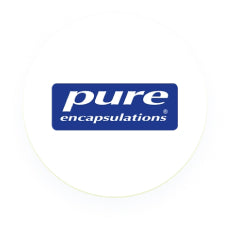

Welcome to a World of Personalized Care:

A Unique Pharmacy That Puts YOU First
- Thousands of nutritional supplements and herbs to choose from
- Experienced practitioners, including nutritionists, naturopaths, herbalists, pharmacists, and more
- One-on-one wellness consultations with personalized recommendations




Every Day Low Prices Up to 25% OFF
We offer super deals on popular product lines.

The Sinus Survival is a holistic program for chronic and fungal sinusitis created and developed over the past 42 years by Dr. Ivker.

Easy ordering at your fingertips!

Order today
Add the products you need from our online store and proceed to checkout.

We Ship With in 24 Hours
We ship within 24 hours excluding weekends and holidays. Tracking information will be sent to you via email.

Be Healthy & Happy
Optimize your health with our high-quality nutritional products and expert guidance.


NUTRITION COUNSELING & WELLNESS CONSULTATIONS
You can easily schedule a one-on-one virtual consultation from anywhere with one of our nutrition experts.
Throughout your appointment, they will work closely with you to create a tailored health plan to support your health and wellness goals.

EXPLORE OUR GREAT EVERYDAY DISCOUNTS!












Let customers speak for us
from 593 reviews
Awesome

Good product!!!!

They are delicious and fresh. Helps the mind , body, and soul

This probiotic helps keep my gut bacteria in check and my immune system in good condition.

Great service.

Just started taking this mag glycinate. Hoping it will help with sleep issues.

Highly recommended by my acupuncturist! It is a powerhouse!

I started useing this at first sign of tingling like others have mentioned and I reapply every two hours throughout the day . Its strong stuff just a thin layer needed. I'm on day 3 of use and my cold sore is 1/3 the size it normally gets . And no pain or irritation . I feel like it's starting to heal up already . Recommended to keep useing it even past the time you think it's going away. I really like this but have to eat tic tacos cause leaves strong taste in mouth . It's totally worth it !!!

I stated taking Nattokinase as part of a precautionary Spike protein detox. Since this is a preventative for me, not a corrective hard to tell if it’s working. But, it’s also supposed to help with Cardiovascular function.

it's very helpful to treat my allergies and sinus indeed. Works well!!! Thank you!!

Magnesium (citrate)

Gets rid of my cough quickly. Arrived promptly. I recommend.

I appreciate the very prompt and helpful service

I live in the desert. My sinus’s are always dry and in the spring I am bothered by allergies when certain plants start blooming. I prefer not to take allergy meds since they make me tired so I rely on this and herbal nasal spray to get me through.

I have used Newton's Menopause drops for years and have never had to take hormones. They are getting hard to find. I googled them and found them at Village Green Apothecary. I had never heard of Village Green and was a little leary of ordering from them, but I did anyway. They sent my order in a timely fashion with no problems.

A DIFFERENT KIND OF PHARMACY WHERE YOU'RE NEVER JUST A NUMBER
Trusted Reputation, Expertise, and Personalized Support

LEARN MORE ABOUT HEALTH & WELLNESS ON OUR BLOG
Our health and wellness specialists keep you updated with evidence-based content covering topics such as healthy nutrition, fitness, and overall mental and emotional well-being.



WATCH, LISTEN OR READ OUR HUMANIZED HEALTH PODCAST
Join us for engaging interviews and presentations featuring top experts in personalized health and functional medicine. Learn about root causes and how to decode your health by looking at genes, labs, lifestyle and health history..

FREQUENTLY ASKED QUESTIONS
Why are some practitioner brands restricted?
Some specialty and practitioner-brand nutritional supplements require individuals to have access to adequate professional advice before buying. Typically these brands are sold only in healthcare practitioners' offices. Having an expert nutritional team allows us to carry many top, hard-to-find practitioner brands including Xymogen, Metagenics, Klaire Labs, Thorne, Nordic Naturals’ professional line, and more.
Many of these top-quality manufacturers require screening of customers to ensure that purchases of their products are handled with extra care, and that customers have access to professionals familiar with the products.
Some practitioner brands also have restricted pricing for sales of their products over the internet. If you have a question regarding price for any of our supplements, please Contact us or call us at 800-869-9159.
How can I schedule a consultation?
You can easily schedule a one-on-one virtual consultation from anywhere by using the secure HIPAA-compliant web portal. Click "Book Your Appointment," select a practitioner and appointment time, and choose the consultation that suits you.
How can your pharmacists help me with my health issues?
Our knowledgeable pharmacists can provide valuable insights on nutritional depletions caused by certain drugs and guide you on interactions between drugs and nutrients or herbs. This information is not commonly available and ensures optimal medication management.
What services does your compounding pharmacy offer?
Our compounding pharmacy specializes in creating personalized combinations of drugs and nutrients tailored to your specific needs and preferences. Custom compounds are prepared on orders from a nutritionist or physician, like a regular prescription. Some physicians who regularly prescribe individualized compounds include family care doctors, allergists, pediatricians, and dermatologists. Veterinarians also use custom compounds for their pet patients.
What are the benefits of individualized compounds?
Individualized compounds offer several advantages over mass-produced bottled products, including simplified nutritional programs, accurate tailor-made dosages, reduced daily capsule intake, varied dosage forms like liquids or creams, and elimination of non-natural fillers and allergens.
Do you offer lab tests?
Yes, Village Green offers a wide variety of functional lab tests that can be ordered online, providing valuable insights into your health status. Some kits are also available for purchase in-store for added convenience.
Our nutrition experts are available for consultation to help interpret your lab results. They will work closely with you to understand the findings and create customized protocols based on your unique needs and health goals.





EXPLORE OUR HUGE SELECTION OF PRODUCTS!
WE HAVE OVER 10,000 PRODUCTS & OFFER EVERYDAY DISCOUNTS!

We also guarantee the lowest prices on many practitioner brands. If you find it cheaper elsewhere, we'll beat it by an extra 5% ( more details here )
Shop Now Book a free Consultation




Village Green Apothecary
5415 W Cedar Ln
Bethesda, Maryland, 20814
(301) 530-0800
Toll Free: (800) 869-9159
The information provided on this site is not intended to be a substitute for advice or treatment from a qualified physician, nor is it intended to diagnose or treat a health problem or disease. Consult your physician prior to starting any new health program or if you any questions regarding a medical condition.
© 2023 Village Green Apothecary - All Rights Reserved.

























